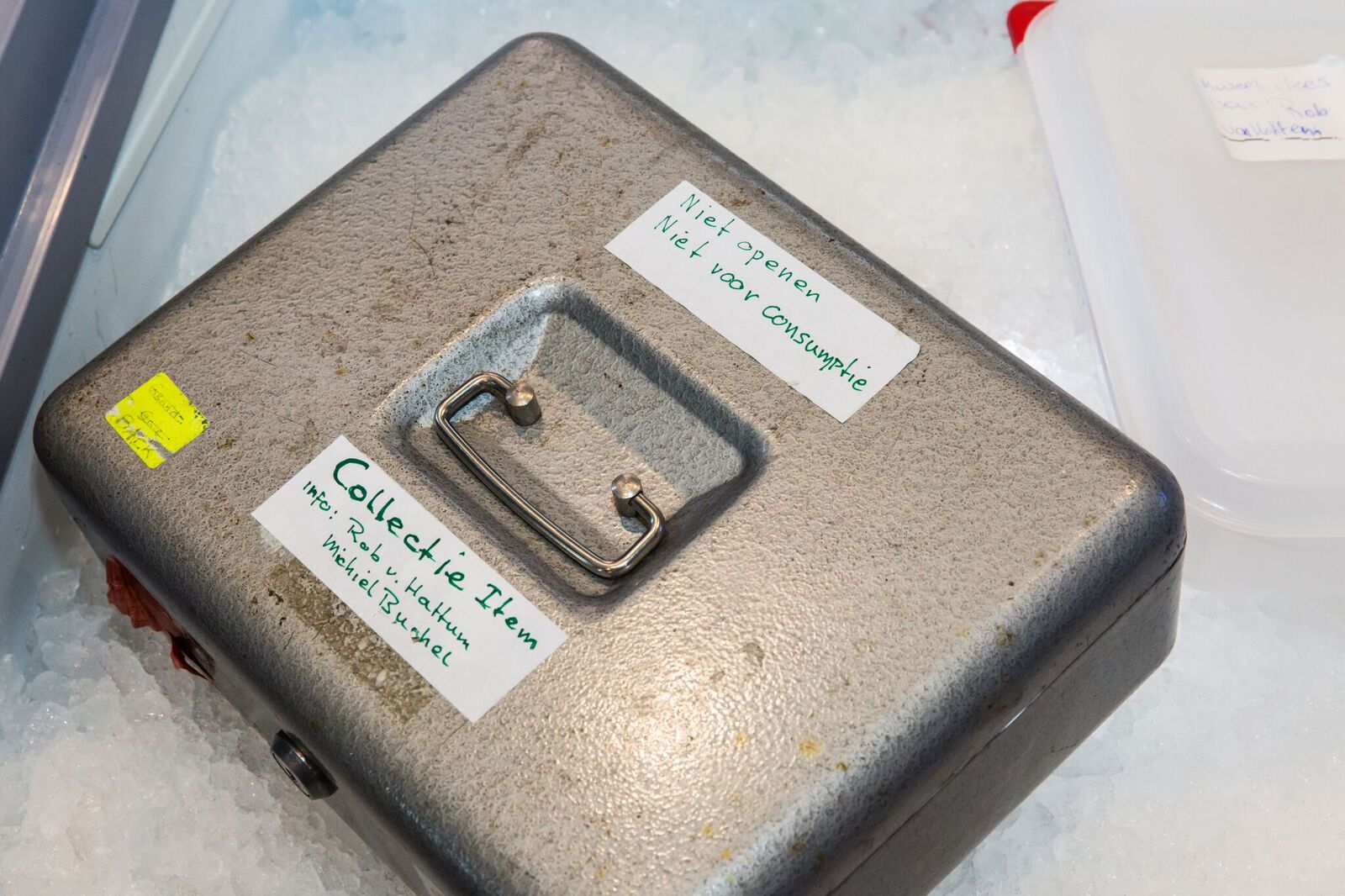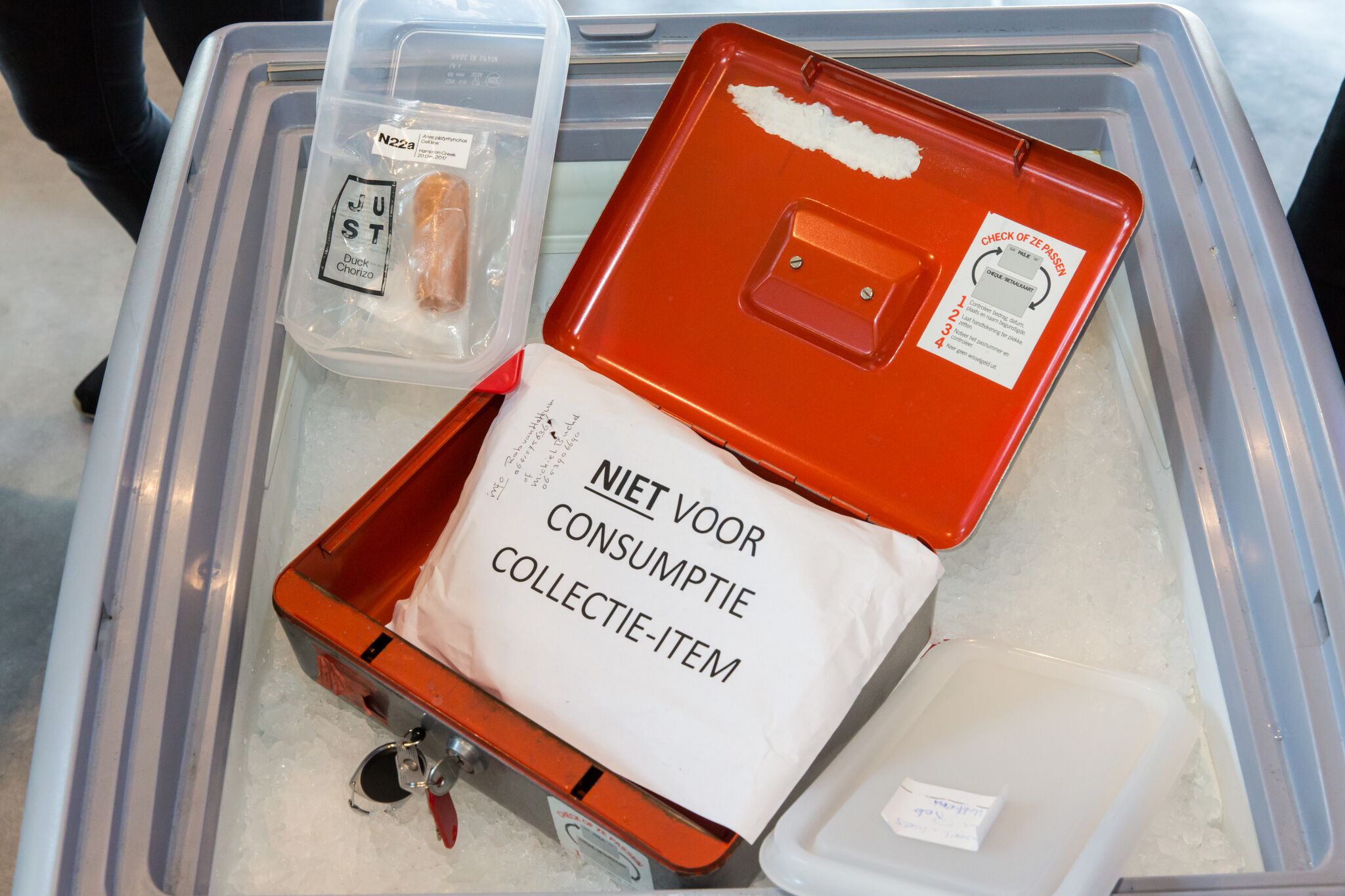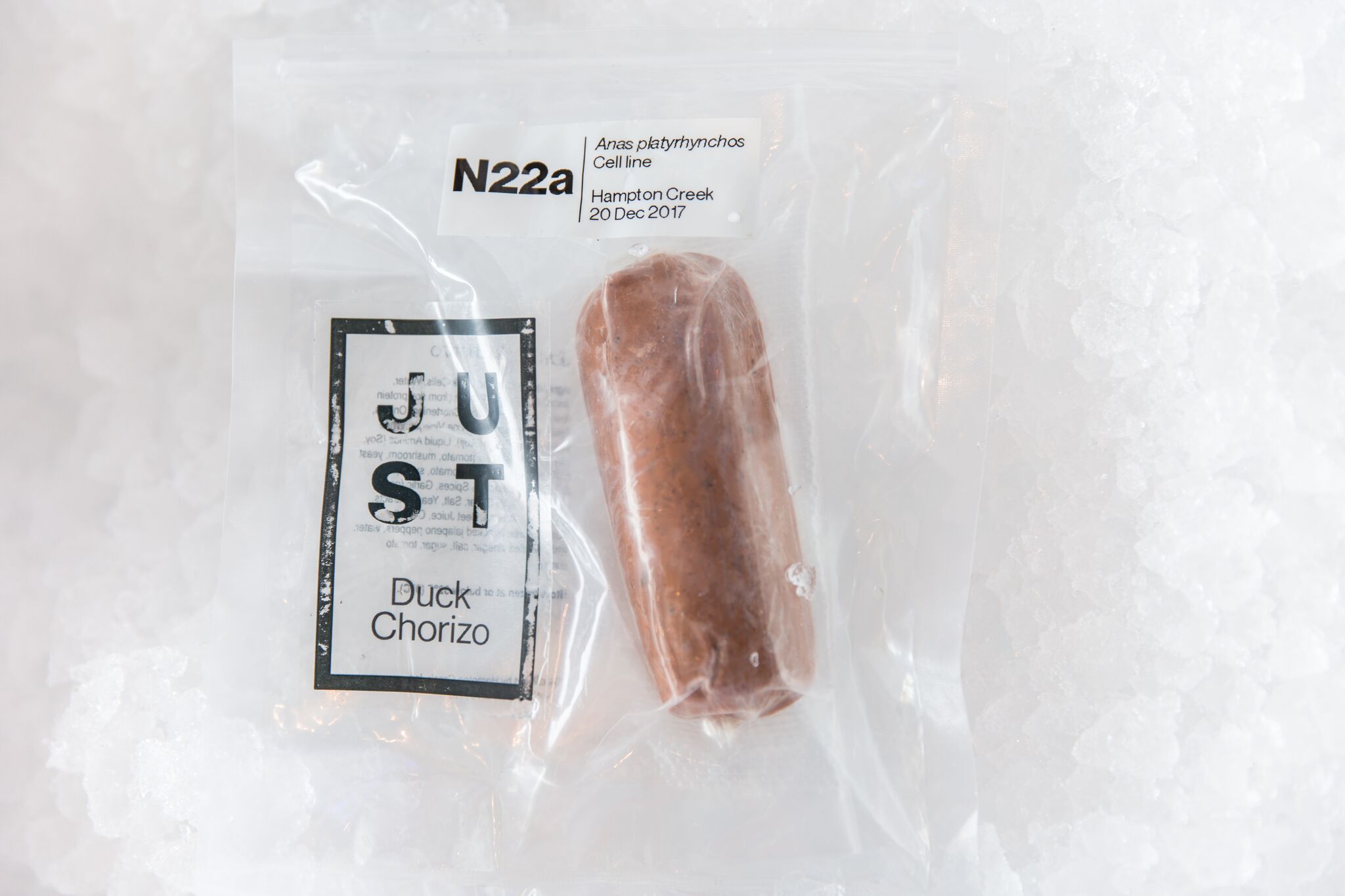In 2017, two years after her father died, Ira van Eelen decided to call the Dutch Arable Farming Union. She couldn't help but wonder how come the Netherlands was still not leading the next food revolution.
What followed was an unexpected call from Josh Tetrick, the lightning-rod CEO of billion-dollar US food startup JUST (formerly Hampton Creek), who invited her over for a tasting in the kitchen of their laboratory in San Fransisco. From that moment on, things started to move. Quickly.
The company bought the patents from her father and took Ira in on the member advisory board to bring her father's dream to the market by the end of 2018. "Being on the market is part of the learning experiment," says Van Eelen, "this is how it becomes real.”
Together they spoke with governments in the US, Singapore, China and the Netherlands to explore what leadership in this field looks like. Ira convinced Josh to introduce the meat in the Netherlands due to its background and inherence in the field, and it seemed as if nothing could stop the two in doing so.
Ira did her research and learned from the Dutch Arable Farming Union that a business proposal was needed in order to get the dream done. Knowing this, this led her to “behave in an appropriate matter” when offering the Dutch government a proposal to jointly take the lead in a well-orchestrated tasting experiment within the margins of the law.
Together with JUST, Ira proposed serving victimless fois gras to the dinner table. “People were already eating fois gras before 1997,” Ira commemorates - this was the year her father initially filed the patent.
Whilst setting up arrangements, Van Eelen found three parties (two restaurants in Zaandam and NEMO Science Museum in Amsterdam) that were interested in serving the meat. And so, she updated the Dutch Arable Farming Union about her plans.
“The idea was to serve the meat every other two weeks on a small scale with an informed, yet curious audience, to learn and see what people would think of it.” Ira says. “As it is now, we are not able to give people the chance to be involved in the product. Therefore my goal is to take it from the lab and onto the plate.”
But unfortunately, it never came that far.
A prisoner of legislation
A first dinner was scheduled to take place on December 28th, 2017. “But then we found that this was not allowed,” Ira tells us. “I called the Dutch Arable Farming Union, as well as the Ministry of Agriculture, Nature and Food Quality for more information. They told us there was a transitional arrangement that ran until 1 January 2018 - the day that the new European novel foods regulation took effect - and on the 23rd of January, they told me that the idea was off the table.”
However, as arrangements had been made, the meat arrived in the Netherlands. “Because I had told the Dutch Arable Farming Union about our plans, they felt the need to inform the Dutch Food and Consumer Product Safety Authority (NVWA) about it, who in turn - under the rule of this European legislation - have taken the meat into custody,” Ira says. “It has not been confiscated or taken away, but it is sealed. It’s just laying there now.”


 The sealed sausage, as documented at NEMO Science Museum.
The sealed sausage, as documented at NEMO Science Museum.
“I’m not mad,” Ira says, “I’m worried! We missed a unique opportunity to launch this in the Netherlands, as we were able to deliver in 2017. Politicians are badly informed on this topic matter, and they act upon outdated information. Therefore other countries are now taking the lead in this revolution. Look at Memphis Meats in the US, or Supermeat in Israel. Also China, where the developments on in vitro meat are closely monitored, is interested. And Singapore has been eager to do things for years, but Europe is locked by the Novel foods administration.”
“It feels as if I’m being held prisoner in Europe. I find it almost unsafe that the innovations that are needed (and of which I am convinced that they are necessary - I am a very positive person), are being held back under the guise of food and safety in Parma, where the European Food Safety Authority (EFSA) is established. It’s as if we have put up some sort of a ‘Trump wall’ to put down new ideas and possibilities, letting a lot of interesting and important innovations pass us by.”
And it’s exactly this balustrade that led JUST to take the revolution eastwards: The company announced in February it will open its first in vitro meat manufacturing facility in Asia later this year. A big miss for Europe.
In vitro meat is a unique opportunity to reach our climate goals
“It’s a shame that the Netherlands missed out on this due to European legislation!” comments Koert van Mensvoort, joining the conversation. “It’s a unique opportunity to reach our climate goals,” he adds. “We want to excel at innovation and food productivity worldwide. And then this? It’s time we call upon politicians. It’s time for a change.”
“Research shows that in vitro meat reduces greenhouse gas emissions by 90% compared to beef, as much less grain, land and water is needed than in traditional agriculture and livestock farming,” he adds.
“The people must know about this too,” Ira nods approvingly.
Therefore, Next Nature Network launched a petition. A petition for people interested in the developments around, are curious about, and looking to taste the in vitro meat.
The goal? Parliamentary questions! The Dutch Food and Consumer Product Safety Authority should become an active contributor to innovation by testing the in vitro meat test packages (instead of sealing them) and give people the chance to taste it themselves. Do you agree?
Sign the petition if you do - and also want to taste in vitro meat. I sure know I do.


Comments (0)
Share your thoughts and join the technology debate!
No comments yet
Be the first to share your thoughts!